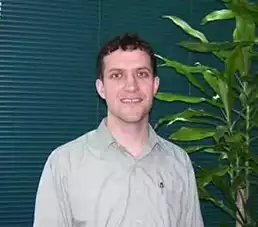Project Team
Part of the InTeGrate Grand Valley State University Program Model

Steve Mattox (Grand Valley State University)
I am a professor of Geology at GVSU and serve in the Integrated Science program. As a geologist, I mapped quads in Utah, found gold at economic concentrations in West Australia, and mapped a base metals deposit in Java. I gained teaching experience as an Interpretive Ranger at Hawaii Volcanoes National Park and as an Instructor at Northern Illinois University, The School of the Art Institute of Chicago, and the University of Hawaii at Hilo. At GVSU, my primary duty is teacher preparation. My greatest reward is mentoring science students to publish their work or present at state or national conferences. With NSF support, I have established a statewide network of 12 colleges and universities that offer college credit for high school course work and passing an exam. I am also part of Mi-STAR (Michigan Science Teaching and Assessment Reform, see http://mi-star.mtu.edu/) program led by Michigan Technological University.
Read Steve's Faculty Reflection

Deborah Herrington (Grand Valley State University)
My primary research project involves studying the teachers enrolled in the Target Inquiry (TI) program and their students. The TI program is an innovative, research-based professional development program for science teachers designed to improve the frequency and quality of inquiry instruction in area science classrooms. This is a great project for pre-service science teaching majors. The current (2016) cohort to TI teachers consists of 13 high school and middle school science teachers. Students involved in this project get experience with both quantitative and qualitative educational research methods and acquire a deeper understanding of research-identified best practices in science education. For more information about the TI program see http://www.gvsu.edu/targetinquiry.
Read Deborah's Faculty Reflection
 ×
×

Stephen M. Rybcznski (Grand Valley State University)
My scholarship focuses on the development of inquiry-based investigations for use in K-12 classrooms. Current projects include: 1) the influence of stream ecosystem attributes on benthic invertebrate community structure and 2) trophic relationships among beetle seed predators, wasp parasitoids and trees in the Legume family. I am also interested in the relationships among instructional strategies, student attitude, and Nature of Science understanding.
Read Stephen's Faculty Reflection

Keith Oliver (Grand Valley State University)
I am interested in questions of how and why we teach physics. What role can physics education play in the development of cognitive skills? What role do the unexpressed goals sometimes called the Hidden Curriculum play in physics classroom. Some examples of hidden curriculum may include epistemology (how do you know), ontology (what is there), and gender roles.
Read Keith's Faculty Reflection

Pablo A Llerandi-Roman (Grand Valley State University)
My training is in pre-service and in-service K-12 teacher science education: focused on integrated science, geoscience and environmental education, science teaching methods, and learning theories. My pedagogical research is in in-service and pre-service science teacher education; pedagogical content knowledge; curricular development for teaching in the field (geoscience); active learning approaches; and undergraduate education. My geology research informs geohazards education, Caribbean geology; structural geology; stratigraphy; and coastal science.

Angela Slater (Grand Valley State University)
My primary duties include teaching and mentoring pre-service teachers and guiding them as they develop of inquiry-based curriculum. My interests include using inquiry to promote the development of science reasoning and process skills.
Read Angela's Faculty Reflection
 ×
×

Tari Mattox (Grand Rapids Community College)
My career outside the classroom spans more than 15 years and four tectonic plates. After earning my B.Sc. in geology from McGill University in Montreal Canada, I began my professional career as a consulting geologist monitoring groundwater in Indiana. I continued my education at Northern Illinois University in DeKalb, where I studied chemistry of volcanic rocks from the Central Volcanic Zone in Chile. For several years, I served as a geologist for the U.S. Geological Survey's Hawaiian Volcano Observatory where I monitored the eruption of Kilauea volcano. In 1996, I joined Australia's Commonwealth Scientific and Industrial Research Organization where I studied 3 billion year-old nickel deposits. I began teaching at GRCC in 2002 and was hired as a full-time instructor in 2015. I enjoy the diversity of GRCC students I meet and making geology relevant to their lives and careers.
Read Tari's Faculty Reflection

Amber Kumpf (Muskegon Community College)
My professional Experience includes being a seagoing research scientist aboard JOIDES Resolution, Expeditions 324 & 305, a Visiting scientist at Australian National University's Geophysical Fluid Dynamics Laboratory, and a lecturer at University of Rhode Island, Salem State College, and Norwich University. I earned my BS in Applied Geophysics at Michigan Technological University and a MS in Oceanography - Marine Geology & Geophysics, University of Rhode Island. Here at MCC I teach Physical Geology, Historical Geology, and Oceanography.
